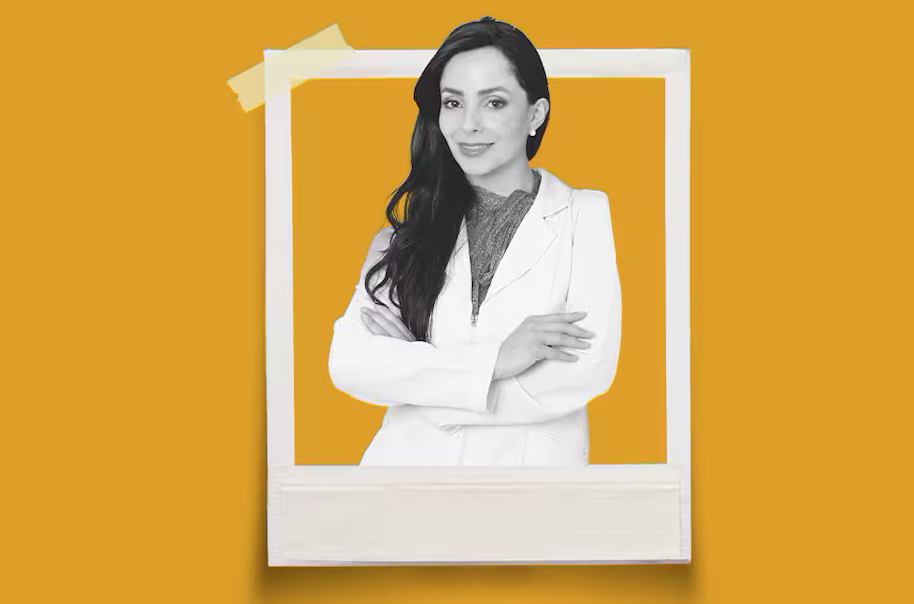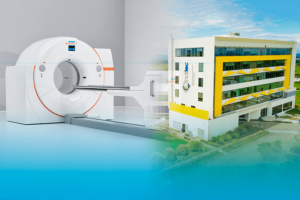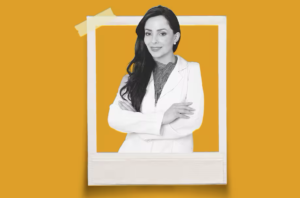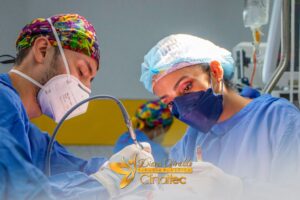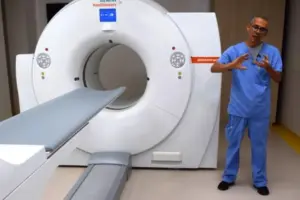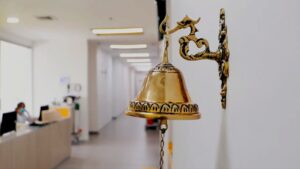On the occasion of World Cancer Day, we talked to plastic surgeon Diana Giraldo, who is leading an education and awareness campaign to prevent skin cancer in farm workers. The specialist talked about this initiative and how she has turned plastic surgery into her art form.
How was this initiative born?
From Clinaltec, in the Research and Teaching Department, and as an oncologist plastic surgeon, we have launched several campaigns. We firmly believe that education is the best form of prevention. That is why we are committed to teaching the population about diseases, their prevention and early diagnosis. A few months ago we created the "Oncology Fighters" community, made up of oncologists from various specialties, where we educate physicians, patients, families and the community in general. At our last meeting, 400 general practitioners learned about early cancer diagnosis. We are currently focusing on skin cancer, the most preventable cancer, after having carried out a campaign on breast cancer, which, although not preventable, can be cured with early diagnosis.
Why is this day focused on farm workers?
Farm workers are not the only ones who are constantly outdoors, but in rural areas access to information and campaigns like these is more difficult. In this type of space we teach them what skin cancer is and how to take care of themselves. We address issues that may seem common, such as the use of sunscreen: although it may seem incredible, this population does not have access to this information. In my practice, the pathology that I treat the most as a plastic surgeon oncologist is skin cancer, where approximately 80 % of my patients are farm workers who arrive with very advanced tumors, which if diagnosed early are treated with very simple outpatient surgeries, without incapacity, and that is what we are looking for with this conference: to teach this population how to prevent.
What have you discovered or demystified about skin in this work?
People don't know how easy it is to prevent skin cancer and are full of myths about it, but it is something to pay attention to. For example, something that worries me as a plastic surgeon is that a negative phenomenon is emerging on social networks against the use of sunscreen, driven by people who, in their eagerness to gain followers and attract attention, are generating controversy. These people, who are even influential doctors, are leading campaigns against sunscreen and promoting direct exposure to the sun. But their messages go against the recommendations of the World Health Organization and the scientific societies of dermatology and oncology.
Why did you decide to become a plastic surgeon?
I grew up with parents dedicated to art. However, my dad also worked in clinics, so he wanted me to be a doctor, even though I wanted to be an artist. Art was in my blood. While I was in school I took fine arts courses, I learned to paint, sculpt, among other things. In the end I decided to study medicine because it captivated me and it was always clear to me that I wanted to become a plastic surgeon. That was the way I managed to combine my two passions: medicine and art.
And is there still room for art, or does surgery take up all your time?
I see plastic surgery as an art. I love the aesthetic part when I sculpt bodies. For example, I am passionate about breast surgery, I do it both aesthetically and oncologically. In my experience I have reconstructed many women with breast cancer who have had a mastectomy, so I have the experience to reconstruct breasts after the removal of implants. That, besides being a challenge, is an art form. In fact, it is the only one in which I currently work, since I don't have the time to dedicate to anything else. But I do dream of being retired at home, with my painting studio, where I can do what I was so passionate about and what kept me awake at night.
Is there any case that has astonished or marked you, or, on the contrary, do you think that, being your daily job, you have lost the capacity for astonishment?
Recently, I had a case that marked me very much, but I could not make a positive impact on that life. It was a patient that I was only able to see in a consultation. She, unfortunately, was mistreated from the beginning, since she was operated on for a tumor, but they treated her as if it were benign, did not make a proper diagnosis and the surgery was poorly done. She was not operated on by an oncological surgeon, but by a general surgeon, and they ended up causing tumor seeding. She told me that she trusted the doctors and the treatment. The tumor was still operable and, although she was receiving chemotherapy, shrinking the tumor, there was a chance of meaningful reconstructive surgery and aiming for a cure. But, unfortunately, she was immunosuppressed and depressed, so she developed pneumonia. She was rushed to another institution and, as we were about to do the medical board to proceed, the lady passed away. We were very saddened, because there was a chance to save her and because it is devastating when they take away the patient's first opportunity for treatment.
How do you handle frustration in those cases where there is nothing left to do or things go wrong?
Contrary to popular belief, not all physicians have this ability to deal with illness and death. I don't, and for me it is a very difficult subject. That is why I have specialized in patient safety and quality. I believe that the day I lose a patient, whether in cosmetic or reconstructive surgery, it will be a very hard moment, although it has not happened to me so far. I do everything possible to prevent it: I am the only plastic surgeon specialized in patient safety in Colombia and a lecturer in congresses in this area. Patient safety is not only about knowing what you are doing, but also about working as a team from the moment the patient arrives until his or her final discharge. Health is a complex area and everything can go wrong.
What goes through your head before you enter an operating room? Do you have some sort of ritual?
For me surgery is like my "hobby". In the operating room I disconnect: I do not answer cell phones, I play music that relaxes me and I always operate with the same surgical team. I do not like to operate with people who are inexperienced in what we are doing; our team is very well trained. The most important ritual is the checklist and the safety stop. In it we go through every step necessary for the surgery, making sure we don't omit anything to minimize risks. This ritual is performed by the entire team: the general practitioner, the surgeon, the anesthesiologist, the assistant and the scrub nurse.
What has changed in you since you decided to do what you do?
One thing that is clear to me is that my work has changed my perspective a lot. Before, I used to focus on small problems, like fights or everyday things, but now I deal with people who are going through dark moments, close to death. They give me life lessons: they smile, they thank me, they bring me fruits, gifts, they hug me, and even though they are facing such difficult and economic situations, they keep an optimistic attitude. I have realized that, being in a good health situation, I sometimes complain about insignificant things. My work in oncology has allowed me to see life in a new light.
By Samuel Sosa Velandia:
Social communicator and journalist from the Universidad Externado de Colombia. Passionate about stories intertwined with culture, contemporary social and artistic movements and sexual diversity. He is also a folkloric dancer in training.
Source: https://www.elespectador.com/el-magazin-cultural/no-todos-los-medicos-podemos-lidiar-con-la-enfermedad-y-la-muerte-diana-giraldo-cirujana-plastica-noticias-hoy/

